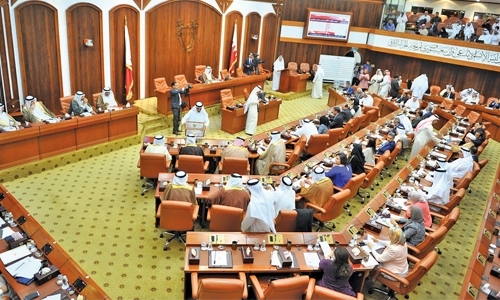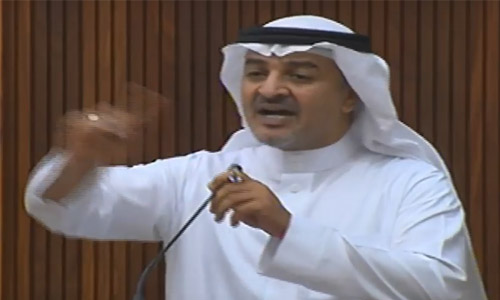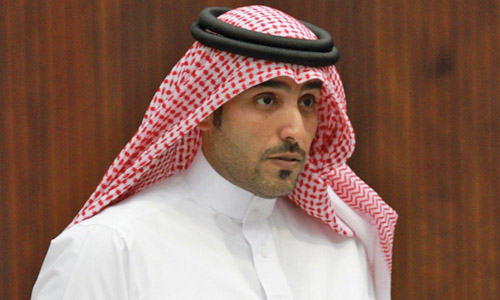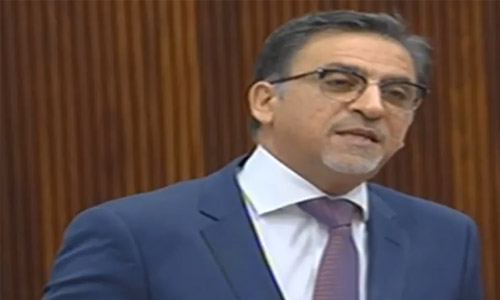Heated debate over proposed 5pc tax
Manama : The House of Representatives yesterday witnessed heated debate over a proposal to impose an additional five per cent tax on companies making an annual net profit of BD0.5 million.
The MPs disagreed on the report of the Council’s Financial and Economic Affairs Committee, which recently passed the proposal submitted by Public Utilities and Services Committee chief Hamad Al Dossary and a group of MPs last month.
The proposal adds an article to Law 21 of 2001 with regards to commercial companies, instructing to impose a 5 per cent tax on the annual net profit of companies making more than BD0.5 million a year.
According to the presenters of the proposal, 40pc of the private establishments operating in Bahrain annually achieve this figure.
The first opposing voice to the proposal came from the council’s Second Deputy Speaker Abdulhalim Murad, who suspected that the proposal is not compliant with the Islamic Sharia and suggested to refer the matter to a religious panel to approve it before voting on it.
Murad’s statements created an argument between him and MP Jalal Kadhim, who was one of the MPs who moved the proposal.
Kadhim criticised several MPs’ rejection of the proposal including Murad.
The Council’s Speaker Ahmed Al Mulla intervened to break the deadlock, which ended with Murad and Kadhim exchanging heated arguments with accusations of disrespecting one another.
When given the mic again to speak about the proposal, Kadhim said that imposing taxes on commercial establishments is similar to procedures followed in fellow GCC countries.
“Bahrain has always been a tax free zone, while all types of taxes are imposed on us in other countries.
“In Oman, Kuwait and Qatar, similar taxes are imposed on companies making annual net profit of BD5,000 to BD375,000 with percentages ranging between 5pc to 55pc.
“We only suggested 5pc on companies making BD500,000,” Kadhim said.
“Net profits of private companies and banks in Bahrain cross BD500 million a year, and deducting only 5pc wouldn’t affect them much, but would benefit the State budget,” he commented.
Kadhim condemned how some MPs rejected the proposal, but agreed imposing fees and taxes on citizens in the past.
Demanding MPs to pass the proposal, Al Dossary insisted that the proposed 5pc is trifle in comparison with the huge profits annually achieved by private banks and companies operating in Bahrain.
After showing a couple of reports proving that some banks made annual net profits of BD570 million last year, Al Dossary asked: “Can’t they support the country which provided them with all sorts of facilities to operate with only 5pc of their net
profits?”
“They are all aware of the tough economic situations in the Kingdom and they should assist the state in overcoming the crisis.
“Everyone in this council is seeking creating new revenues to the state budget during these tough conditions. Why do they reject when we submit proposals to support the state,” Al Dossary said.
On his part, MP Isa Al Kooheji rejected the proposal, stating that “introducing taxes isn’t our job”.
“As citizens, it is not our duty to think on behalf of the Government on how to increase its revenues. The government has ministers, experts and consultants. They should come up with means to increase the incomes of the state, not us,” Al Kooheji remarked.
Another opposing voice, Ali Al Muqla, commented, “Imposing this new tax harms employers and puts unnecessary burdens during this economic crisis. We must keep in mind that any taxes imposed on traders and business owners will definitely reflect on citizens.”
Not in the right place
A representative of Industry, Commerce and Tourism Ministry said that Law 21 of 2001 with regards to commercial companies isn’t the concerned law to introduce new taxes.
The official said the law only regulates the operation of companies.
“Such proposals should be referred to Finance Ministry and not Industry, Commerce and Tourism Ministry,” he added.
Shura Council and Representatives Council Affairs Minister Ghanem Al Buainain also supported the official’s statements, saying that imposing taxes couldn’t be made by amending existing laws that are not concerned.
The MPs finally voted for referring the five per cent tax proposal back to the committee so it could be studied and reviewed in a more appropriate manner.
Related Posts





